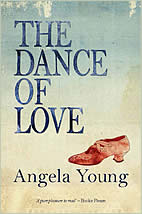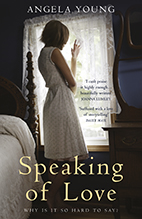A couple of weeks ago some friends suggested we see ENGLISH, by Sanaz Toossi, at the Kiln Theatre. It’s finished its run now, but if you see it advertised anywhere, go.
Toossi wrote the play after the travel ban, colloquially known as the Muslim Ban – ‘a licence to discriminate, disguised as a “national security measure” ’ – in 2017 (the play began life as a university thesis): it was first performed in 2022, in New York, although it was supposed to be performed in 2020 – but covid hit. Toossi talked about the play to CNN recently and it won the Pullitzer Prize for Drama in 2023. It’s set in a school for English, in Iran.
Those are the facts.
This is its effect: ENGLISH shows how it feels when you don’t belong; when you feel ashamed you can’t manage another language; when you can’t express yourself easily; when you want to talk to your own family in another language and they stop talking to you, because you can’t speak the other language well enough. ENGLISH shows how humiliating it is when other people laugh at your attempts to speak a new language; how much courage it takes to speak another language; what an omnipresent and potent instrument language is and how small and futile, how useless, how homesick you feel when you can’t speak let alone think fluently in a language different from the one you were born hearing.
Characters in the play speak English always, except at the very end, but when they’re speaking in their native Farsi, their English is fluent and quick, exasperated and funny, natural and we understand who they are; when they’re speaking in English their words are accented and halting, the phrases they learn often have little subtle meaning (they’re in a class to learn basic English) and it’s very difficult to get a sense of who they are.
ENGLISH shows how it feels to be homesick for your own language; how it feels to need to migrate but how the new language alienates you before you even arrive in the new country; how it feels when your name is mangled by people who can’t be bothered to learn to say your name properly (one character says, ‘Our mothers get to name us. Not foreigners’); how the loss of language is also the loss of land and family and culture and jokes and the ability to express yourself easily without being laughed at for the wrong reasons: for making mistakes in a language that you haven’t yet got to grips with, but the people listening to you don’t allow for that. How you forget who you are in a different language; how sad, how infuriated, how helpless you feel when you can’t make yourself understood but you long for connection.
Find ENGLISH. It will break your heart and show you that the person who doesn’t speak the language you speak fluently is just as complex, just as heartbroken, just as loving and lovable, just as funny and full of insight, just as thoughtful and full of longing to communicate as you are.






Leave a Reply